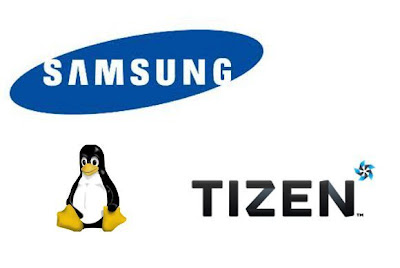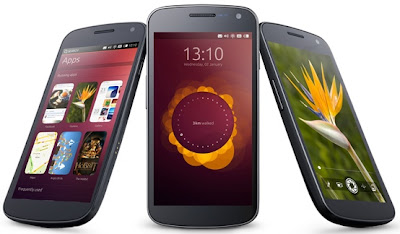Samsung Confirms Tizen Phones for 2013, so do we really need another smartphone OS?
People may have been used to Samsung smartphone runs on Google’s Android Operating System or the latest windows phone 8, so would you even consider buying a smartphone running on Tizen backed by Intel Corp as its operating system? Yes, according to the news from businessweek, Samsung is going to sell Tizen-Based Handsets this year to reduce its reliance on Google Inc.’s Android operating system after the tech company acquired Motorola Mobility Holdings Inc. for $12.5 billion in May.
“We plan to release new, competitive Tizen devices within this year and will keep expanding the lineup depending on market conditions,” Suwon, South Korea-based Samsung said in an e- mailed statement today. The company didn’t elaborate on model specifications, prices or timeframe for their debut.
Tizen is a Linux-based operating system that arose out of the demise of Nokia's MeeGo platform. Intel and Samsung have taken over the development of Tizen, and the Linux Foundation is overseeing the project. Samsung hope to make Tizen a stronger competitor to Android, which has been viewed by open-source advocates as too closed off for their liking. The goal behind Tizen seems to be an even more open-source, flexible OS designed to be user-friendly and carrier-friendly.
So if that really happened in the future, will you update your phone to those devices? For most of you, the answer may be is: No.
1. Android and iOS dominate the smartphone market.
Smartphone dividedly runs on Android and iOS have dominate the smartphone market, and most important with no signs of slowing down. According to the news from androidcommunity, Android’s market share grew to 53.7% by the end of November 2012, while iOS have a market share of 34.3%, 0.7% percentage down. BlackBerry and Microsoft’s Windows Phone platform follow up afterwards, but both of them are in difficulty.
Now both of android and iOS have extremely well-developed ecosystems that make sharing information across services and even across individual handsets a fairly simple, unified process. App development is strong, and OS updates are regular enough to give phone owners new party tricks to show off. Samsung need a long time to build this.
So now it seems it’s the hard time to welcome newbies.
2. Review from the history
Now let’s back to the year of 2009. At that time, there are six major mobile operating systems available for users: BlackBerry, Symbian, Windows Mobile, Palm WebOS, iPhone, and Android. But a year later, Microsoft's Windows Mobile OS and Palm's WebOS crumpled, and development of RIM's BlackBerry OS stuttered. Nokia still supports Symbian, but put all the intention on Microsoft's Windows Phone.
That is to say, in order to build a successful system, you need much money, some extremely competitive hardware, and a truly new feature or approach. Samsung have enough money, and powerful hardware, but lacks of amazing software technology for Samsung to make a successful software OS. In 2009, Samsung released its Bada platform, which is mainly used in lower-end smartphones sold in Europe and emerging markets, but didn’t make a success in the smartphone market.
It was also said that Ubuntu, Firefox line up to take on iOS, Android in 2013.Full of competition.
Anyway, whether there have a chance for a new OS to take center stage the way that iOS and Android did or not, maybe we can see soon. Let’s look forward to this new OS smartphone.What is your opinion about this new system? Can Tizen smartphones steal Android's thunder? Welcome to leave your comments.
“We plan to release new, competitive Tizen devices within this year and will keep expanding the lineup depending on market conditions,” Suwon, South Korea-based Samsung said in an e- mailed statement today. The company didn’t elaborate on model specifications, prices or timeframe for their debut.
Tizen is a Linux-based operating system that arose out of the demise of Nokia's MeeGo platform. Intel and Samsung have taken over the development of Tizen, and the Linux Foundation is overseeing the project. Samsung hope to make Tizen a stronger competitor to Android, which has been viewed by open-source advocates as too closed off for their liking. The goal behind Tizen seems to be an even more open-source, flexible OS designed to be user-friendly and carrier-friendly.
So if that really happened in the future, will you update your phone to those devices? For most of you, the answer may be is: No.
1. Android and iOS dominate the smartphone market.
Smartphone dividedly runs on Android and iOS have dominate the smartphone market, and most important with no signs of slowing down. According to the news from androidcommunity, Android’s market share grew to 53.7% by the end of November 2012, while iOS have a market share of 34.3%, 0.7% percentage down. BlackBerry and Microsoft’s Windows Phone platform follow up afterwards, but both of them are in difficulty.
Now both of android and iOS have extremely well-developed ecosystems that make sharing information across services and even across individual handsets a fairly simple, unified process. App development is strong, and OS updates are regular enough to give phone owners new party tricks to show off. Samsung need a long time to build this.
So now it seems it’s the hard time to welcome newbies.
2. Review from the history
Now let’s back to the year of 2009. At that time, there are six major mobile operating systems available for users: BlackBerry, Symbian, Windows Mobile, Palm WebOS, iPhone, and Android. But a year later, Microsoft's Windows Mobile OS and Palm's WebOS crumpled, and development of RIM's BlackBerry OS stuttered. Nokia still supports Symbian, but put all the intention on Microsoft's Windows Phone.
That is to say, in order to build a successful system, you need much money, some extremely competitive hardware, and a truly new feature or approach. Samsung have enough money, and powerful hardware, but lacks of amazing software technology for Samsung to make a successful software OS. In 2009, Samsung released its Bada platform, which is mainly used in lower-end smartphones sold in Europe and emerging markets, but didn’t make a success in the smartphone market.
It was also said that Ubuntu, Firefox line up to take on iOS, Android in 2013.Full of competition.
Anyway, whether there have a chance for a new OS to take center stage the way that iOS and Android did or not, maybe we can see soon. Let’s look forward to this new OS smartphone.What is your opinion about this new system? Can Tizen smartphones steal Android's thunder? Welcome to leave your comments.




Comments
Post a Comment